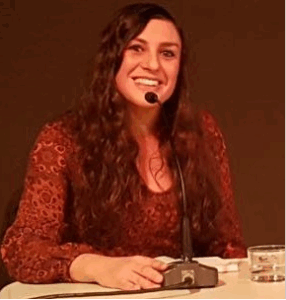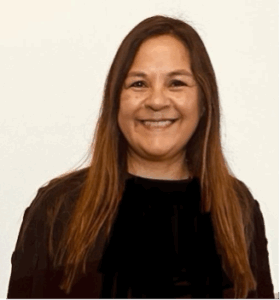COLLOQUIUM
Crossing Borders: Between Risk and Hope

Wednesday, July 2
17:15
Participants:
- Juliane Müller (Universidad de Barcelona)
- Isabel González Enríquez (Universidad Complutense de Madrid)
- Rocío Pérez Gañán (Universidad de Oviedo)
Moderator:
- Patricia Celis Banegas (Universidad Nacional Autónoma de México)

(Universidad de Barcelona)
Juliane Müller is a professor in the Department of Social Anthropology at the University of Barcelona (Serra Húnter program). She was a lecturer and researcher at the University of Munich (Germany), a postdoctoral researcher at the University of North Carolina at Chapel Hill (USA), and a research associate at the Institute for Socioeconomic Research at the Bolivian Catholic University (Bolivia). Her areas of interest are Andean ethnography, anthropology, and the sociology of economics and sports, as well as migration and transnational mobility. She has lived and worked as an anthropologist in Germany, Spain, the USA, and Bolivia. More than a decade ago, in her doctoral thesis, she studied the migratory experiences of Bolivian women based on their sports practices and sociability. The fieldwork was carried out in Seville between 2006 and 2009, shortly after the Schengen visa was imposed. She analyzes the formation of women’s teams within the numerous soccer leagues self-organized by South American workers from a phenomenological approach and practice theory, with a special emphasis on the social fabric, use of urban space, and bodies. Her postdoctoral research, although belonging to the field of popular economics and globalization from below, had an important component of migration and mobility. On the one hand, in a kind of mobile and transitory ethnography, she traveled with Bolivian traders to Chile and China. She has been interested in Andean border spaces and the legality, legitimacy, and wealth that are disputed there.

(Universidad Complutense de Madrid)
Isabel González is a professor at the Complutense University of Madrid and director of the Migration section of ARIES Magazine. She is a specialist in migration in Latin America and Central America, having written her doctoral thesis on forced displacement in Colombia and the reproduction of segregation generated by public policies. The spatial and residential, economic, and public policy dimensions of migratory flows have been the focus of much of her research and applied anthropology projects with organizations such as the United Nations High Commissioner for Refugees (UNHCR), Action Against Hunger (ACH), and the International Organization for Migration, among others. He regularly works on research projects for NGOs and public institutions dealing with migration from Central and South American countries, usually to the US, but also to other Latin American countries, such as policies for assisting Venezuelans in Colombia and Peru in the “recent” refugee crisis in Venezuela. He has also recently participated in research for the Spanish government on the possibilities of expanding circular migration channels and for local governments on the migration situation in their territories.

(Universidad de Oviedo)
She has lived and worked for twelve years in various countries in the Americas (South and North). She is a professor and researcher at the University of Oviedo. Over the last few years, she has focused her work on understanding how migrant bodies—especially those of women—resist, adapt, and are affected by multiple forms of violence in contexts of global inequality. Her interest lies in seeing how globalization, far from being an abstract process, is embodied in everyday life, in bodies, in affections, in borders (symbolic and non-symbolic), and in the “global webs of care.” She has developed two lines of research. The first addresses migration, bodies, and violence, in dialogue with the idea of the domestication of globalization, attempting to think about how the links and ways of inhabiting the world in constant motion are strained and reconfigured. The second is situated at the intersection of climate change, a multi-threat approach to natural disasters, and displacement, with a special focus on those who are already being displaced by environmental impacts—the so-called climate migrants—and the challenges this poses from a critical and situated perspective.

(Universidad Nacional Autónoma de México)
Patricia Celis is an anthropologist and holds a master’s degree in Communication. She holds a PhD in Political and Social Sciences from UNAM. She is a specialist in Identities and Performance. With over 20 years of professional experience, she has developed anthropological tools for ethnographic research of markets and project development for companies in Argentina, Bolivia, Brazil, Chile, Colombia, Costa Rica, El Salvador, Guatemala, Mexico, Panama, Peru, and Uruguay. An undergraduate and graduate professor, she currently teaches Communication and Identity, Anthropology of Consumption, Global Advertising, and National Identity at the National Autonomous University of Mexico and also teaches Market Research and Global Marketing at the Ibero-American University in Mexico City.
